If you are under stress, you will probably reach for traditional “comfort” food – like take out, fast food, sweet foods, and alcohol.
We have all been there, right?! Sometimes there is nothing better than finding some comfort in delicious food and a glass or two… of wine if we are stressed or upset.
However, this is not a good permanent solution. You may feel temporarily better, but in the long run, you will feel worse.
If your body does not receive proper nutrition, you may begin to feel less energetic, more sluggish, and in some cases, less capable of concentrating and focusing. All this can lead to even more stress. Emotional eating also leads to weight gain because it causes us to eat when we’re emotionally hungry instead of physically hungry. This means that our bodies don’t get what they need from their diet. We end up feeling hungrier and therefore overeating.
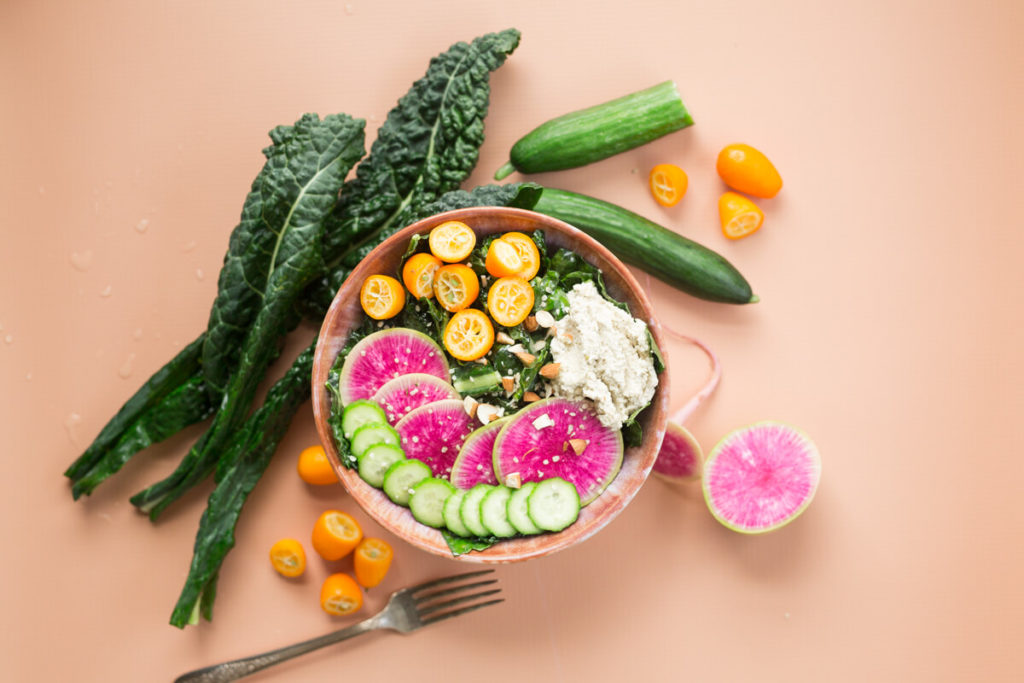
Foods that Fight Stress
If you’ve been under more stress than usual lately, it’s essential to know which foods are better to choose and will help you deal with feelings of stress and anxiety, and which ones should be avoided.
The best way to combat stress is to adhere to a healthy and balanced diet, which includes a moderate amount of each of the different food groups.
Choosing foods such as whole grains, leafy vegetables, and lean proteins is a good place to start to ensure that your body receives the optimal amount of nutrients to help fight physical and mental stresses.
When it comes to choosing foods to help heal and calm your mind rather than provide a temporary solution. The below 10 have extraordinary properties that help the body fight stress.
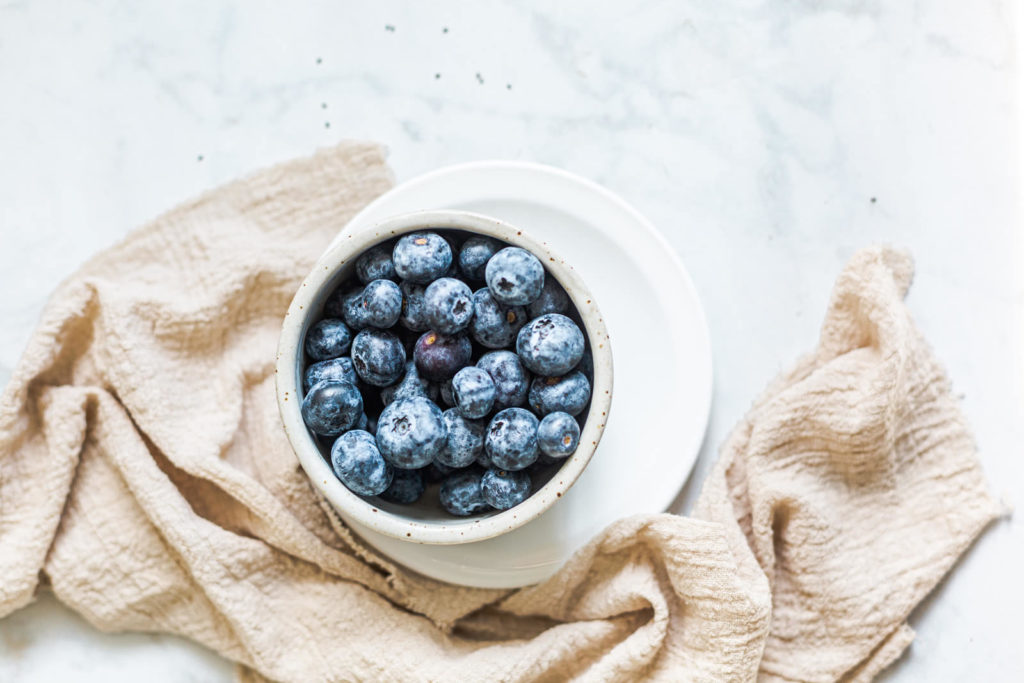
Blueberries
If you are feeling stressed and looking for a snack, rather than reach for some sugary treat reach for some blueberries! Blueberries have some of the highest levels of antioxidants, particularly anthocyanin, which means that this fruit is associated with a wide range of health benefits, including sharper cognition, better focus and a clearer mind, all of which can help you cope with stress better.
Chamomile Tea
Of course, it’s not just about what you eat when it comes to managing stress; what you drink can relieve or exacerbate the stress you are experiencing. Drinks rich in sugar and caffeine, such as coffee, energy drinks, or soft drinks, can increase your stress levels if consumed regularly. Chamomile tea has long been used as a natural remedy for sleep. It has also been determined in clinical trials to reduce symptoms of generalized anxiety disorder.
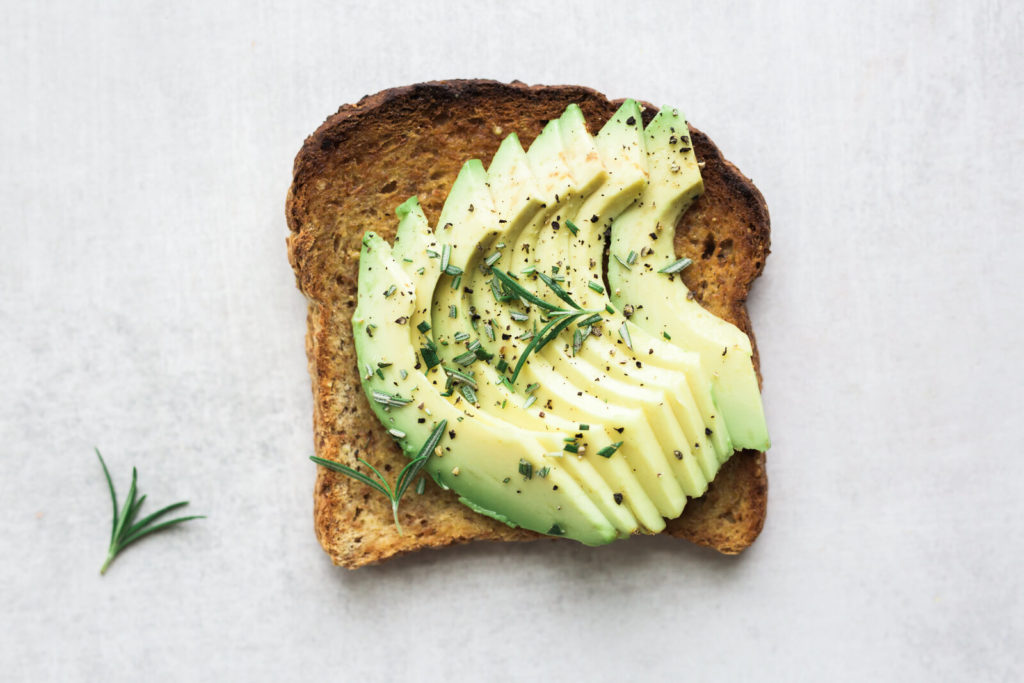
Avocado
Avocados are a creamy and versatile fruit, I mean, what doesn’t go well with avocados? You can eat them as they are thrown into a salad, mashed up on toast, they can be made into sauces and dressings, dips, or even in a smoothie. These nutritious fruits have properties that help make your body resistant to stress, mainly due to the high content of glutathione. This substance blocks intestinal absorption of certain fats that cause oxidative damage. Avocados also contain higher levels of vitamins E, folate, and beta-carotene than in other fruits, which increases stress-busting properties. The only thing you should be mindful of is portion control as they are high in fat.
Chocolate
Although it is often considered an unhealthy treat, there is an undeniable connection between chocolate and our mood. Studies have shown that eating chocolate can actually make you happier. However, this does not mean that you can start munching on chocolate bars every time you experience stress – chocolate helps relieve stress best when it is eaten in moderation and as part of a healthy and balanced diet. Especially dark chocolate, as it contains two important antioxidants; flavonols and polyphenols which can help fight stress.
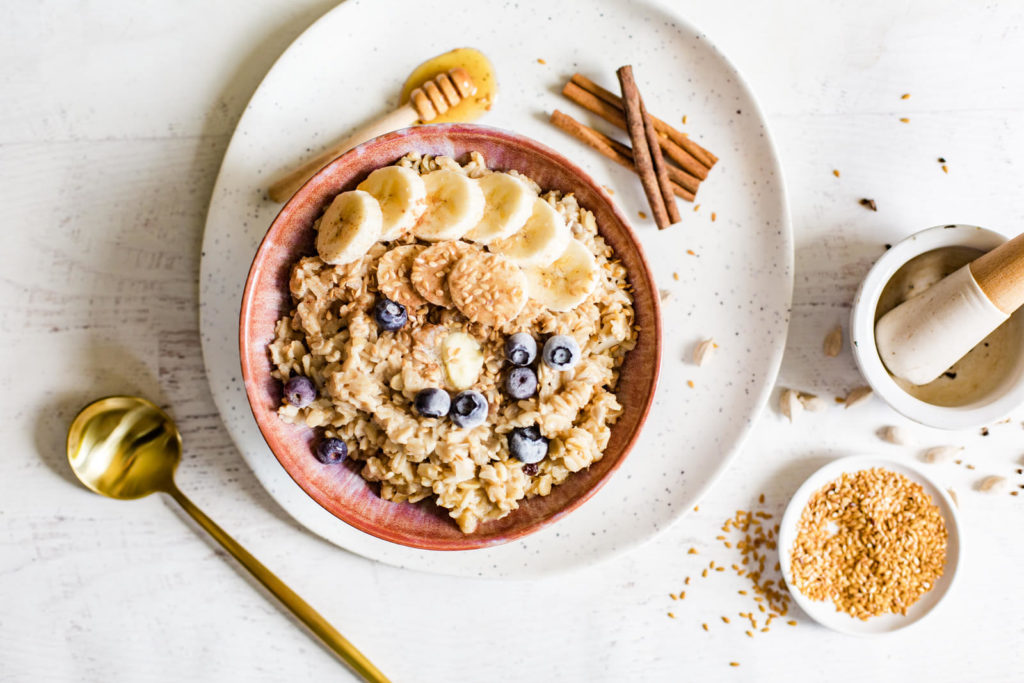
Oatmeal
Oatmeal is a good choice for breakfast especially in winter because it can be a filling and cozy dish, but there is also a set of health benefits that oatmeal provides that will help you feel better from the inside too. A complex carbohydrate, eating oatmeal will raise your levels of the feel-good chemical serotonin, which makes you feel calmer and less stressed.
Walnuts
If you are looking for a healthy snack option that will help you better control your stress levels, walnuts are a good choice. They are rich in omega-3 fats and contain higher amounts of antioxidants than most other foods. Walnuts are also a versatile nut, they can be eaten on their own, or are great in salads for that crunch or you can even add them to your smoothies.
Pistachios
Another nut that is great for snacking on and can also help fight stress and anxiety in the long term is pistachios. Studies have shown that in addition to being high in antioxidants, pistachios may lower blood cholesterol and improve blood pressure, lowering your risk of heart disease. Also, the rhythmic, repetitive action of shelling pistachios can be quite therapeutic although not so good on the thumbnail!
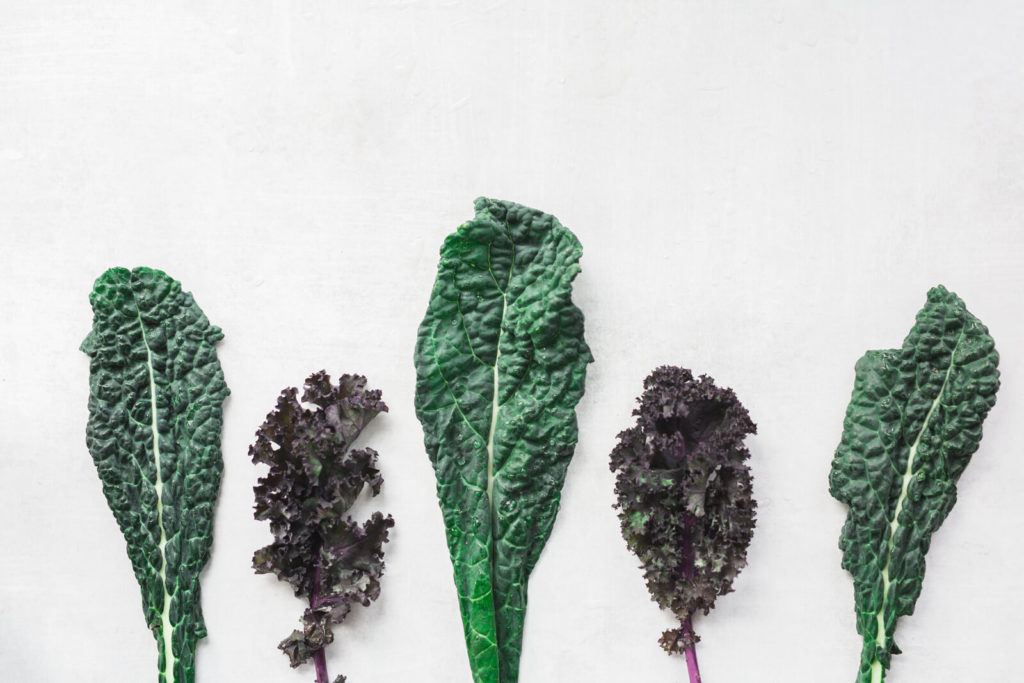
Green Leafy Vegetables
Leafy greens are full of nutrients and antioxidants which help to fight diseases and make you feel healthier and more energetic and in general, happier and less stressed. Dark leafy vegetables such as spinach are especially beneficial because they are rich in folate, which helps your body produce more mood-regulating neurotransmitters, such as serotonin, the ‘feel good’ chemical.
Beef
Grass-fed beef is not only more friendly for the planet and animals but also healthier for people also. Grass-fed beef contains a wide range of antioxidants, including beta-carotene, and Vitamins C and E, which can help your body fight stress and anxiety.If you are looking to justify spending a little more money on organic grass-fed beef perhaps knowing that it is higher in omega-3 and contains less fat than grain-fed beef will help make the decision.
Fermented foods
Eating fermented foods such as yogurt can help keep your gut healthy, which will actually help improve your mental health, and reduce your stress levels. Beneficial bacteria found in fermented foods have a direct effect on the chemistry of your brain and transmit positive mood regulating signals to your brain through the vagus nerve.
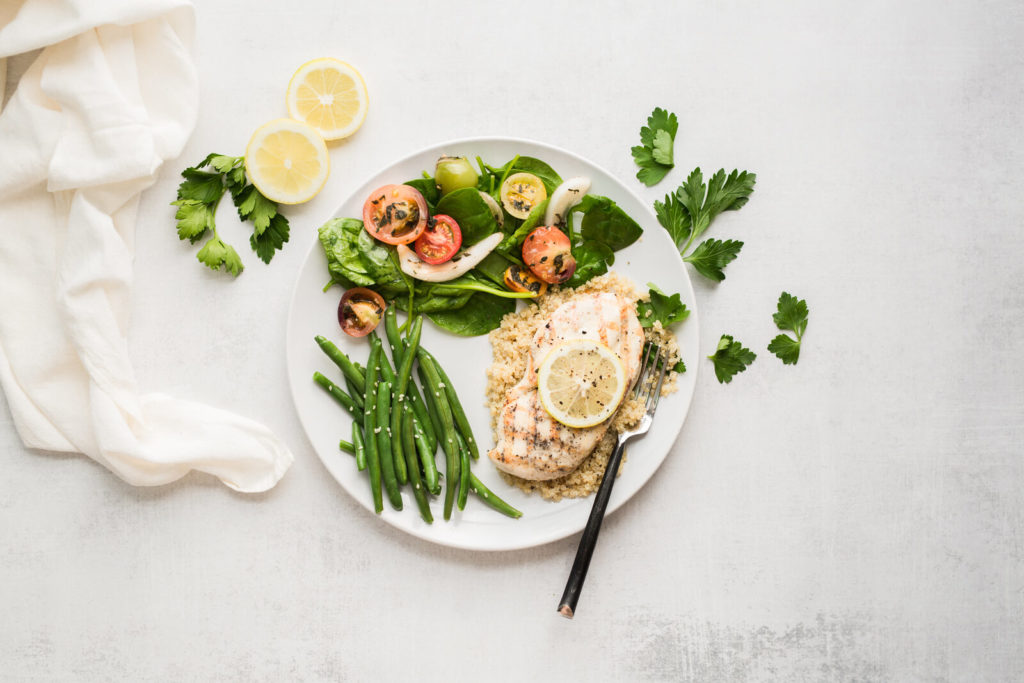
Stress-Reducing Meal Planning
Planning your meals is the key to not only staying physically fit and healthy but also staying mentally strong and knowing how to deal with your stress levels in the best way possible. It’s always easier said than done though, planning out what you’re going to eat each day can seem like a daunting task at times. But if you plan ahead, then you’ll know exactly what you need to do to stay motivated throughout the week. Here are some tips to get started:
- Make sure you include protein in your daily meal plans. Protein keeps you feeling fuller longer, helping you avoid overeating later on during the day. Try lean meats, fish, eggs, beans, nuts, seeds, tofu, etc.
- If you want something sweet after dinner try adding fruit instead of dessert. Fruit provides natural sugars without all the calories from added sugar. You could also opt for low-fat dairy products such as milk, cheese, yoghurt, etc.
- Eat breakfast every day. Breakfast sets up your metabolism for the rest of the day by giving your body fuel before lunchtime. Make it a habit to start eating early every morning. This means getting up 30 minutes earlier than usual and having an easy time making yourself food choices. Don’t skip this important meal either – it gives you energy and boosts your immune system.
- Include lots of fruits and veggies into your diet. Fruits and veggies provide vitamins, minerals, fiber, and water. These things are essential when trying to maintain a balanced weight. They fill you up quickly and give you plenty of energy too.
- Don’t forget about carbohydrates. Carbohydrates are another vital part of any well-balanced diet. Carbs come in many forms including breads, cereals, pasta, rice, potatoes, oats, corn, legumes, starchy vegetables, whole grains, and other complex carbs. Complex carbs have been shown to be better for maintaining blood glucose levels over long periods of time compared to simple carbs that cause spikes in insulin levels. Simple carbs should be limited to once per day.
I recommend making a meal plan for your week and make sure you have a good selection of these stress-relieving foods at hand. That way you are less likely to reach for comfort food that doesn’t make you feel good once the moment has passed.
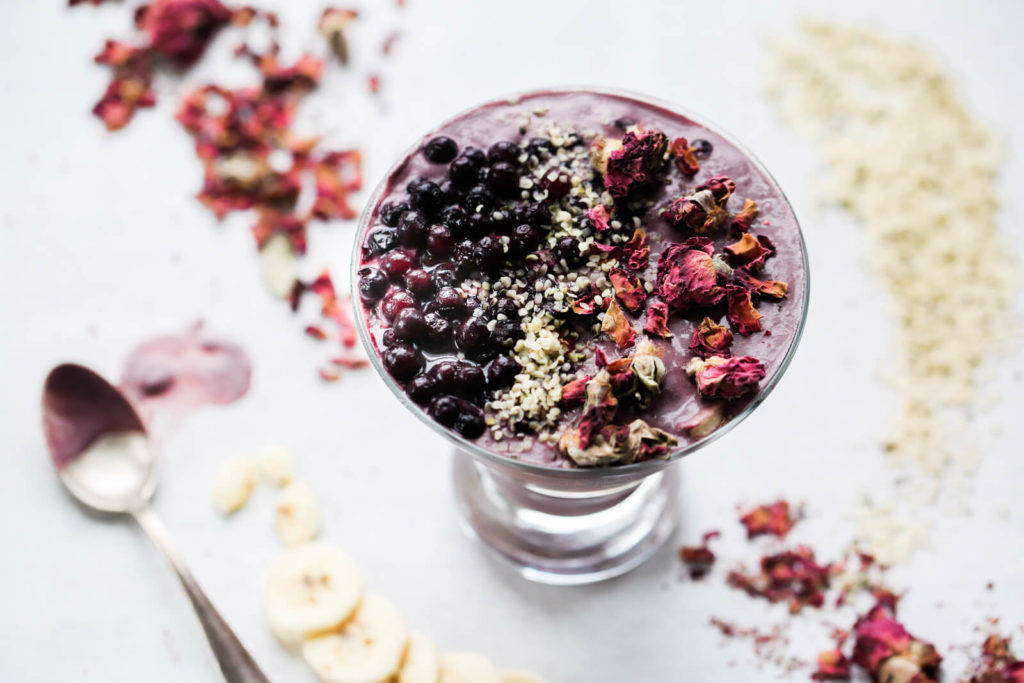
A good example of a healthy, stress-reducing menu would be:
Breakfast: Oatmeal with berries or a fruit smoothie with avocado and berries
Mid-morning snack: Natural yogurt with fruit or a handful of pistachio nuts
Lunch: A whole-grain pasta salad filled with plenty of leafy greens
Afternoon snack: Dark chocolate
Dinner: Grass-fed beef with vegetables
Before bed: Chamomile tea
The idea of this menu is that it gives you a good idea. When eating foods like nuts and chocolate, be mindful of your portion size. Remember “You are what you eat”, so make sure that you look after your mental health by eating a lot of foods which are high in vitamins and minerals.
If you find that you can only manage one thing each day, don’t worry! Just do whatever works best for you. It’s not necessary to follow everything I’ve mentioned above if you think it will take too much effort. However, if you’d prefer to stick to just one tip, pick whichever one seems easiest to implement first.
Good luck! 🙂
The information in this article is intended for your educational use only and is not a substitute for professional medical advice, diagnosis, or treatment. Always seek the advice of your doctor or other qualified health providers with any questions you may have regarding a medical condition and before undertaking any diet, supplement, fitness, or other health programs.
[…] Stress can also influence our food cravings and eating habits. The hunger hormone ghrelin is released in response to stress, promoting food-seeking behaviour and meal initiation. This may explain the connection between stress and weight gain, as well as the difficulty in losing weight when under chronic stress. […]